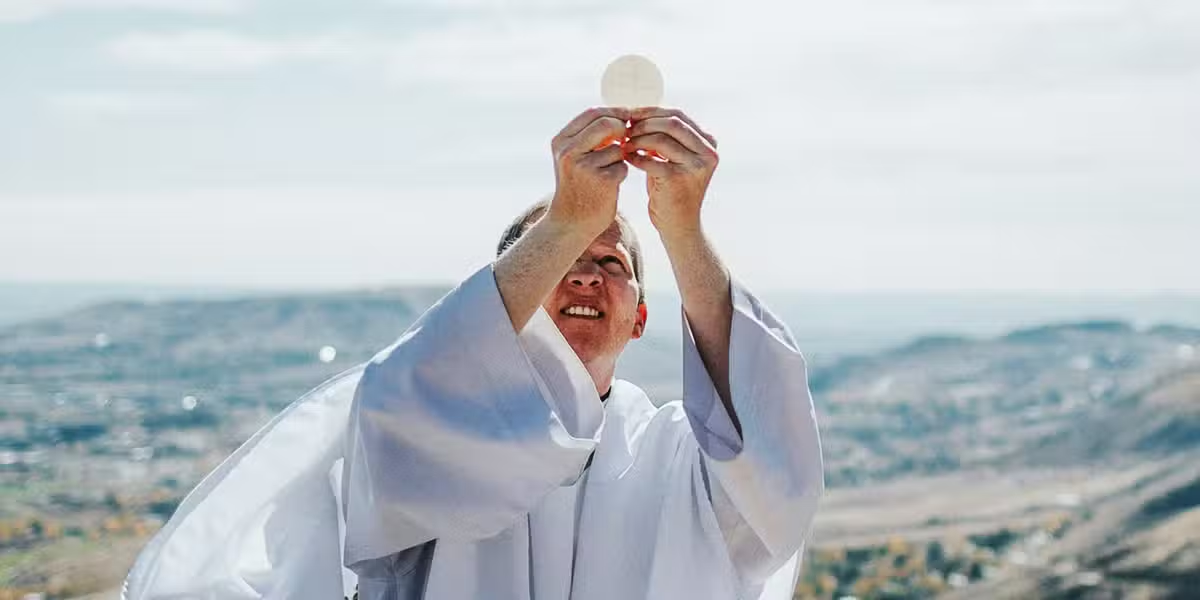My feet are planted quite firmly in two worlds.
One foot stands in a globalized, technological, and fast-paced world. Born in the early 1980s, I am rather expectantly a child of my generation and comfortable in a digital world. The other foot, clad in the iconic sandal, rests in the displaced dirt that marks the footprint of Francis of Assisi.
Having completed my undergraduate education at a Franciscan university, I responded to what I felt deep within was an invitation to walk on a particular journey in this life. I entered the Order of Friars Minor and, for several years, remained the youngest Franciscan friar in my province, the largest group of Franciscan friars in North America. I am a Millennial Franciscan. I share this because this is my starting point.
This is, in part, who I am. I have devoted a lot of my writing to living as a spiritual person today striving toward a deeper relationship with God. Some of you might be wondering: What does a Franciscan friar know about dating? A fair question. While officially “off the market” now, I once had my fair share of relationships in high school and college. Enough to know the ins and outs of dating and relationships—the high of first falling in love and the low of falling out of love.
I know what it is like to break a heart and I have also experienced the pain of heartbreak. I know what the in-between time is like—the fun, bliss, and joy of the early stages and planning as well as the jealousy, fights, and misunderstandings that usually mark the end. And although my time of dating has come to an end, I haven’t forgotten the experiences or the feelings. For the sake of my past loves I have been extraordinarily careful to protect their identities here. The lessons I have learned from these varied experiences help shape my own understanding of what it means to give, communicate, and love.
God is not our boyfriend or girlfriend, nor is God our spouse. Those who like to say that women and men in vowed religious life (like myself) are “married to God” typically take an image of commitment and vocation far beyond its usefulness. It is my hope that we do not subject the image of dating to a similar misrepresentation. Instead, keep in mind that “dating” is an action, a verb, and “spouse” is a status, or noun. To “date God” is to take a particular stance or position toward another. Dating is a way of doing or being. It also evokes a process or ongoing experience that, while at times it may distinguish one’s status, more often than not describes one’s desire to explore another’s truest self.
If you take the romantic connotations away from the term dating, then you are left with a word that can be applied to any experience of getting to know another.
Think of your best friend. If your experience is like mine, then when you first meet someone who is bound to be a close friend, you are initially very interested in that person. You want to spend lots of time with him or her, getting to know that person’s favorite music, food, TV shows, and so on. Perhaps you talk on the phone late into the night or text each other a hundred times a day, updating your new friend on all the useless trivia of your day-to-day life. You might find yourself interested in new things—sports, foods, activities, hobbies—that you never tried before. Maybe you stop eating meat because your friend is a vegetarian. Maybe you start going to church because your friend finds it important. Maybe you never wear dress clothes again because your friend has a weird political aversion to the pretense of a suit and tie.
We slowly, or perhaps at times more quickly, find ourselves becoming more like our friend, precisely because we like our friend. And this is an experience that those who are dating also share, but on a much more intimate level. If these things are true of friends and lovers, how much more so should they be true of God? Mystics through the centuries have described their passionate and intense experiences of God in prayer as though God were a lover.
God as like a friend. Still others, including Jesus of Nazareth, speak of God as a father or a mother. Just as each of these images—lover, friend, and parent—does not exhaust the richness of God’s ability to relate to us in ever increasingly personal ways, to think of God in terms of dating will also inevitably fall short of perfection. Nevertheless, I believe that this way of looking at our relationship with God, new as it may seem to us, might be just what today’s spiritual seekers need to rekindle a sense of the divine in their lives or to discover it for the first time. An experience like dating—that is, a relationship of increasing intimacy, complication, and change—is exactly what Francis and Clare of Assisi knew in their lives lived as prayer. Perhaps it’s time that, following their cues, we go on a date with God.








